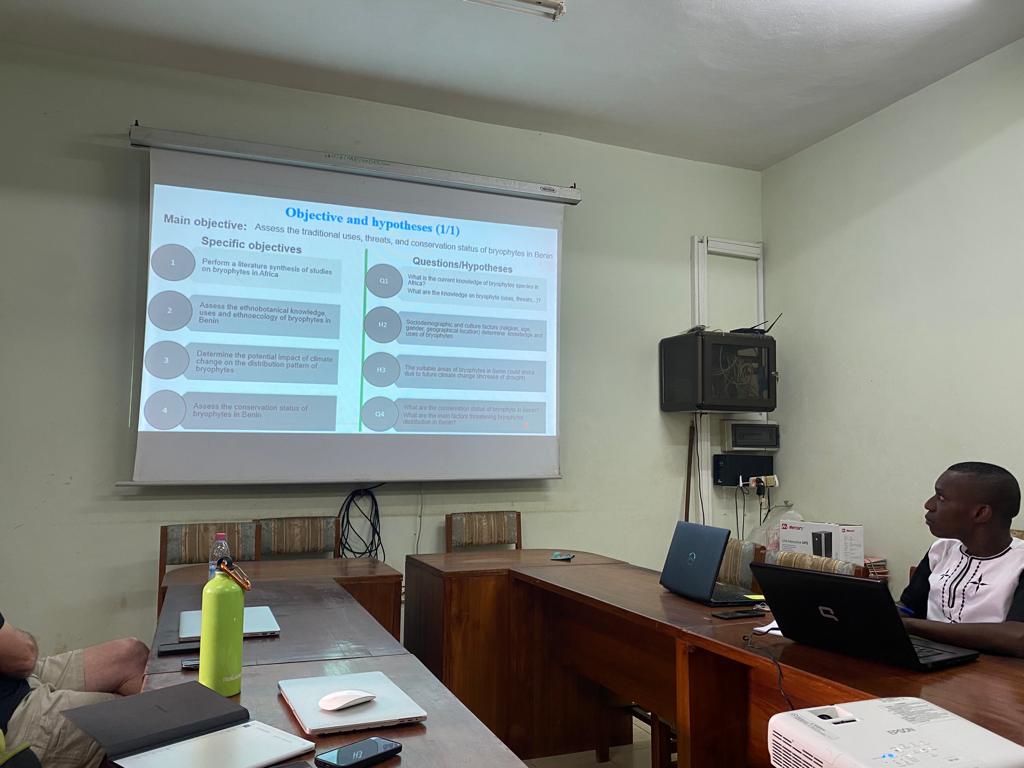
Background
The component 1 of BryoBen project includes the national inventory of bryophytes and their georeferencing. This inventory must be based on specific procedures following standards for the collection of bryophyte specimens. These procedures must also be known, understood, and mastered by the local project team members, field staff and technicians of the BryoBen project before the beginning of field activities. As such, this training workshop aimed to inform, communicate, exchange, and advise field teams. It was facilitated by the two bryologist experts of the project during 10 days from September 10 to 18, 2023.- Activities
There were four main activities: training session, field demonstration for bryophytes sample collection, processing, and preparation, training (in the lab) on specimen identification, and presentations of research proposal by PhD students.
Activity 1: Training session
The project team members and the National Herbarium technicians were trained on bryophytes sample collection, processing, and preparation in the field. This training session was facilitated by the two Bryophyte Experts of the project, Prof. Terry HEDDERSON and Lova MARLINE. Two communications were given. The first, entitled "Introduction to bryology", was given by Prof. Terry HEDDERSON. Through his presentation, Terry reinforced participants' knowledge of bryophytes, their life cycle, evolution, and history. He presented, with photos, the different types of bryophytes: mosses, liverworts, and hornworts. The presentation ended with a question-and-answer session.
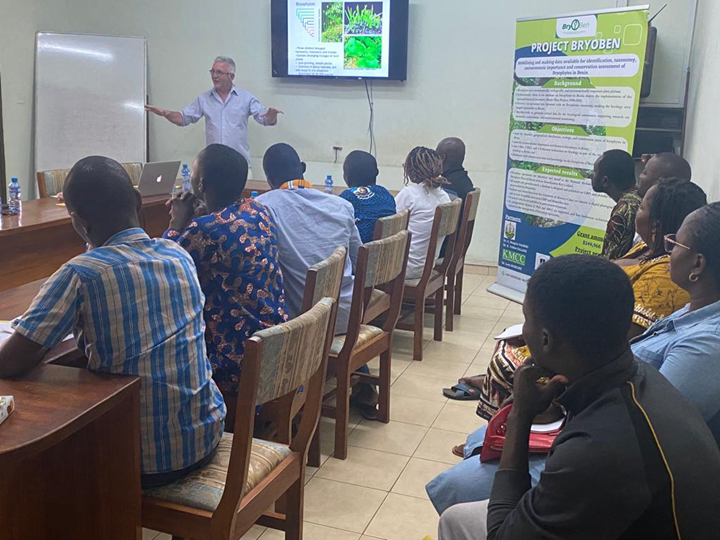
Photo of Prof Terry giving the first presentation
The second presentation was entitled "Bryophyte ecology and collection techniques of samples" and has been given by Lova. Her presentation highlighted the environments that support bryophytes and the conditions required. She then presented techniques for collecting and storing bryophyte specimens through field equipment, methods for good collection depending on the substrate, and tools and conditions for good storage of plant material. As was the case at the end of the first presentation, this second talk ended with a lively question-and-answer session.
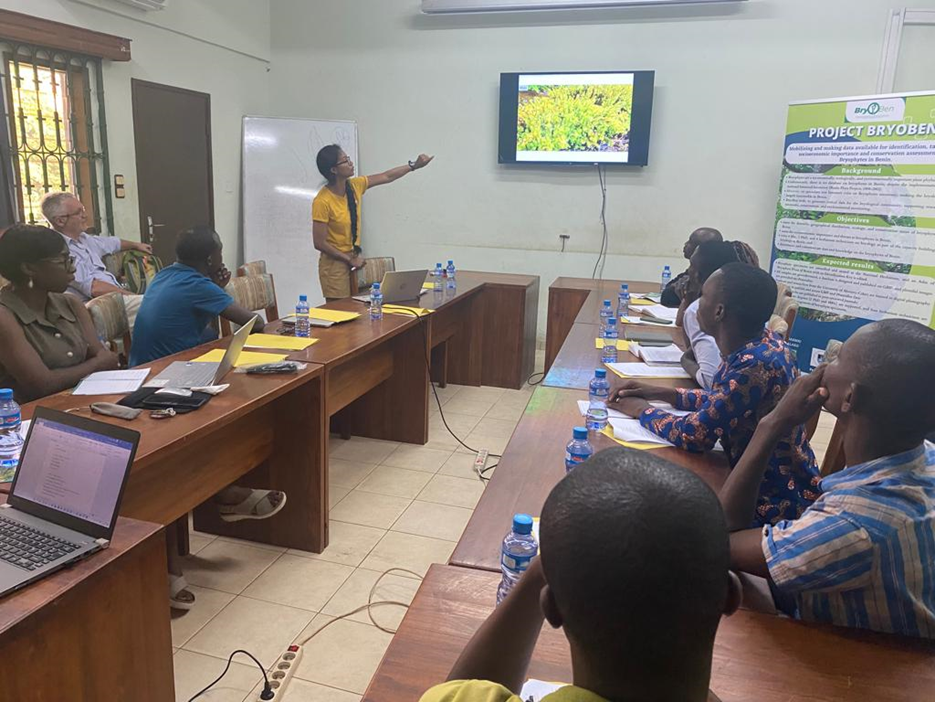
Photo of Dr Lova giving the second presentation
Activity 2: Field demonstration for bryophytes sample collection, processing, and preparation
It was implemented during four days in the Classified Forest of Lama in the commune of Zogbodomey (Southern-Benin). The key activities were:
- prepping for field collection (setting up groups, preparing collecting bags, demonstration on how to collect from different microhabitats, revision on what should be written on the label),
- practice of bryophyte collection around campsite,
- discussion on sampling design and herbarium labelling,
- bryophyte collection, specimen processing (Drying specimen) and
- herbarium labelling and identification test in field.
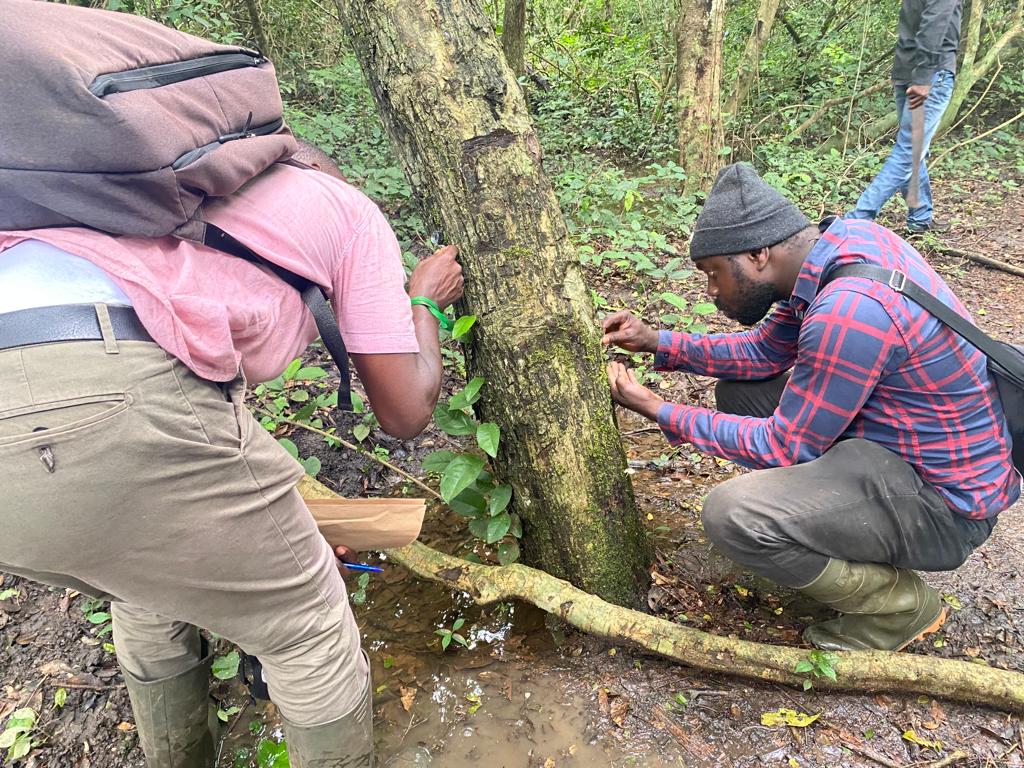
Members of the Benin national herbarium collecting samples of bryophytes
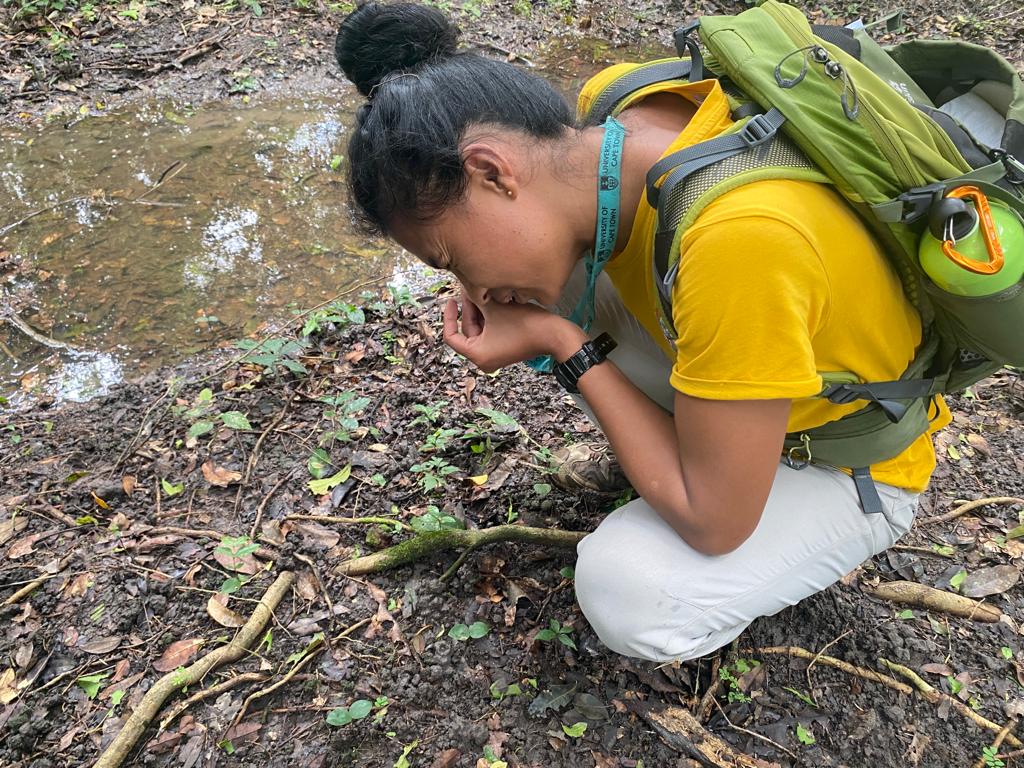
Dr Lova (Bruophyte expert from Madagascar), observing samples of bryophytes during the field work
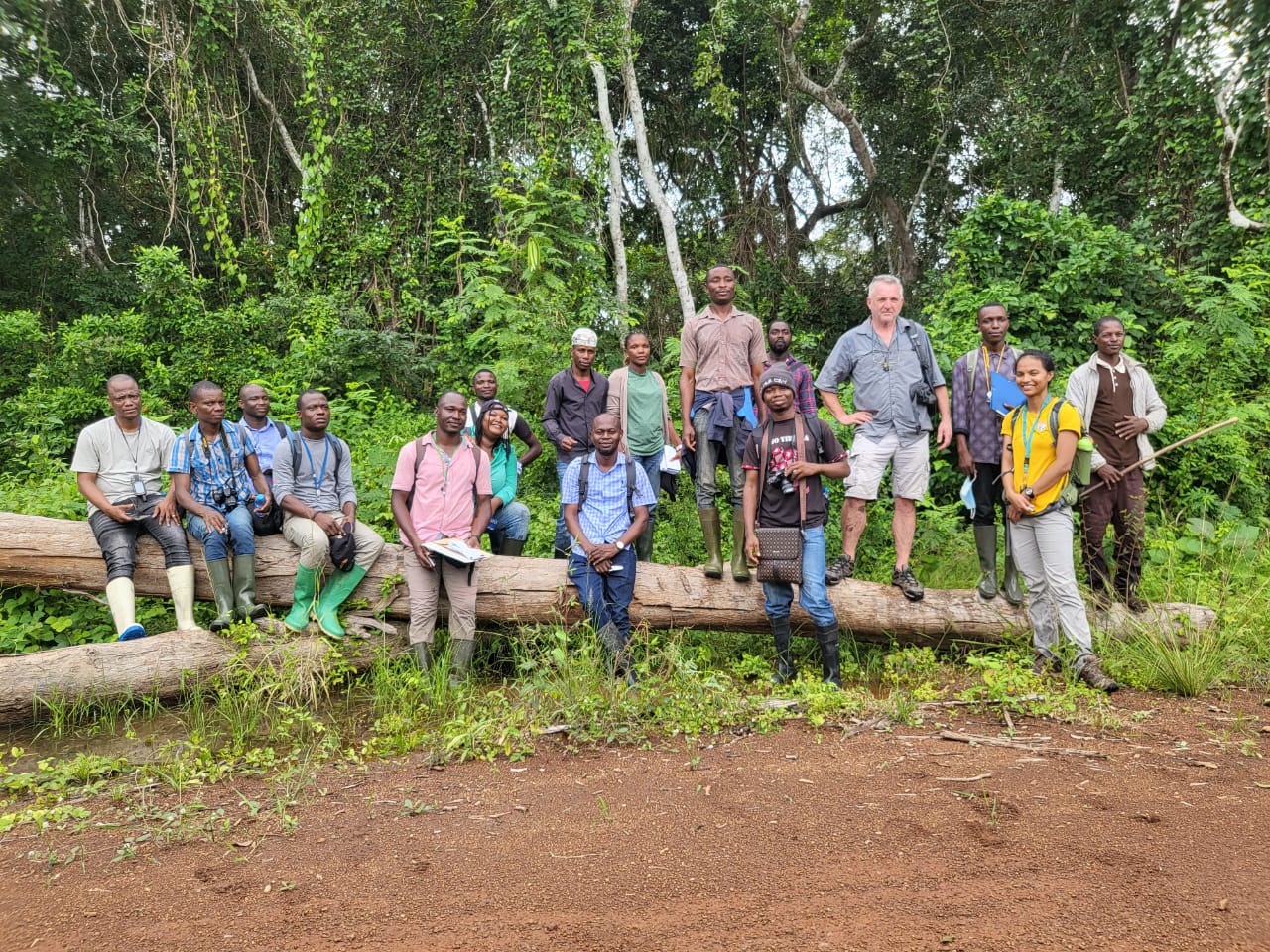
Photo of the whole team that participated in the field demonstration.
Activity 3: Training (in the lab) on specimen identification
The specimens collected during the fieldwork were stored in the prepping room of the National Herbarium, where the identifications were done. This section enabled participants to build a solid foundation in bryophyte identification based on morphological aspects observed using the microscope and the identification key.
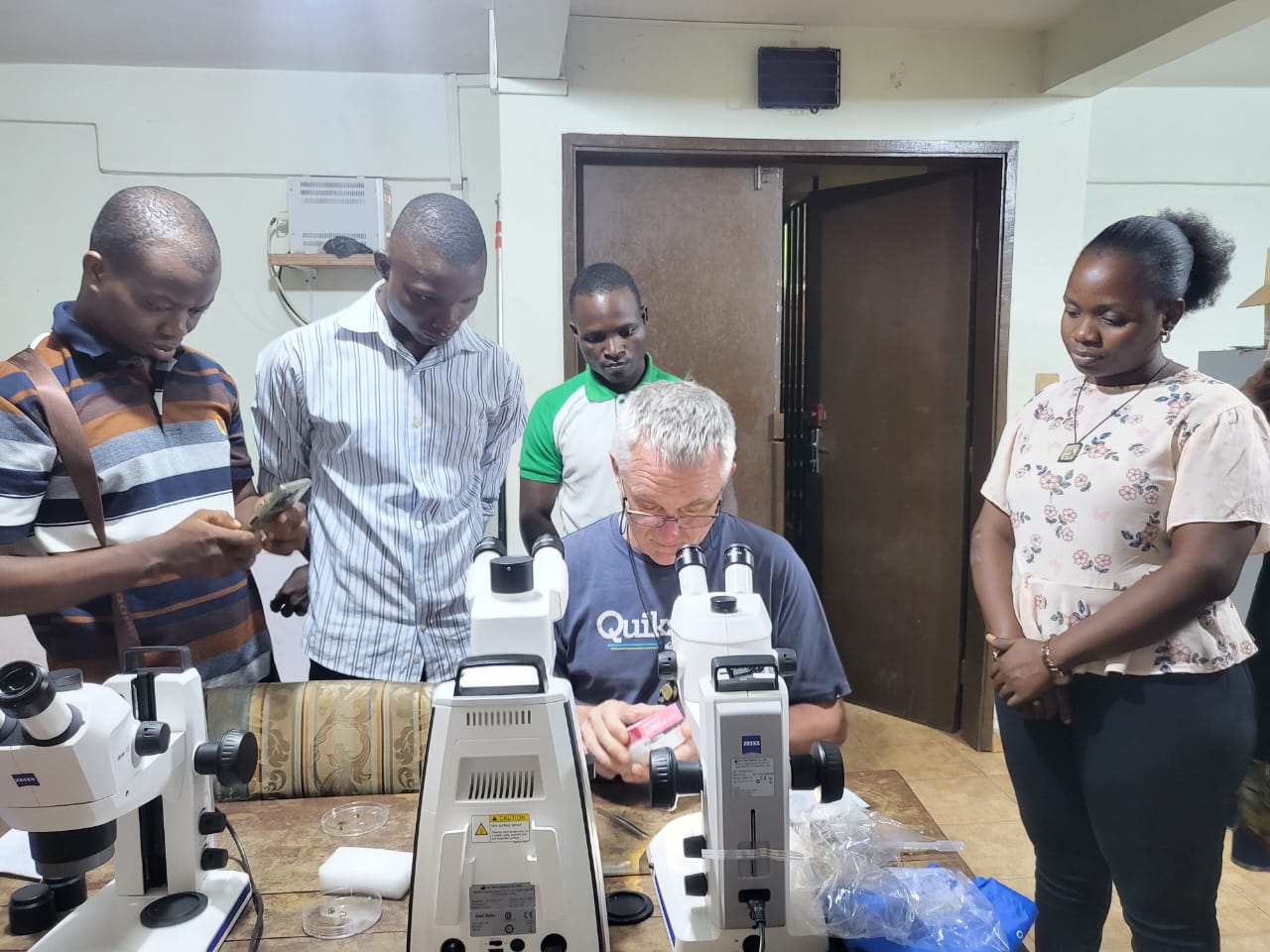
Prof. Terry preparing the observation.
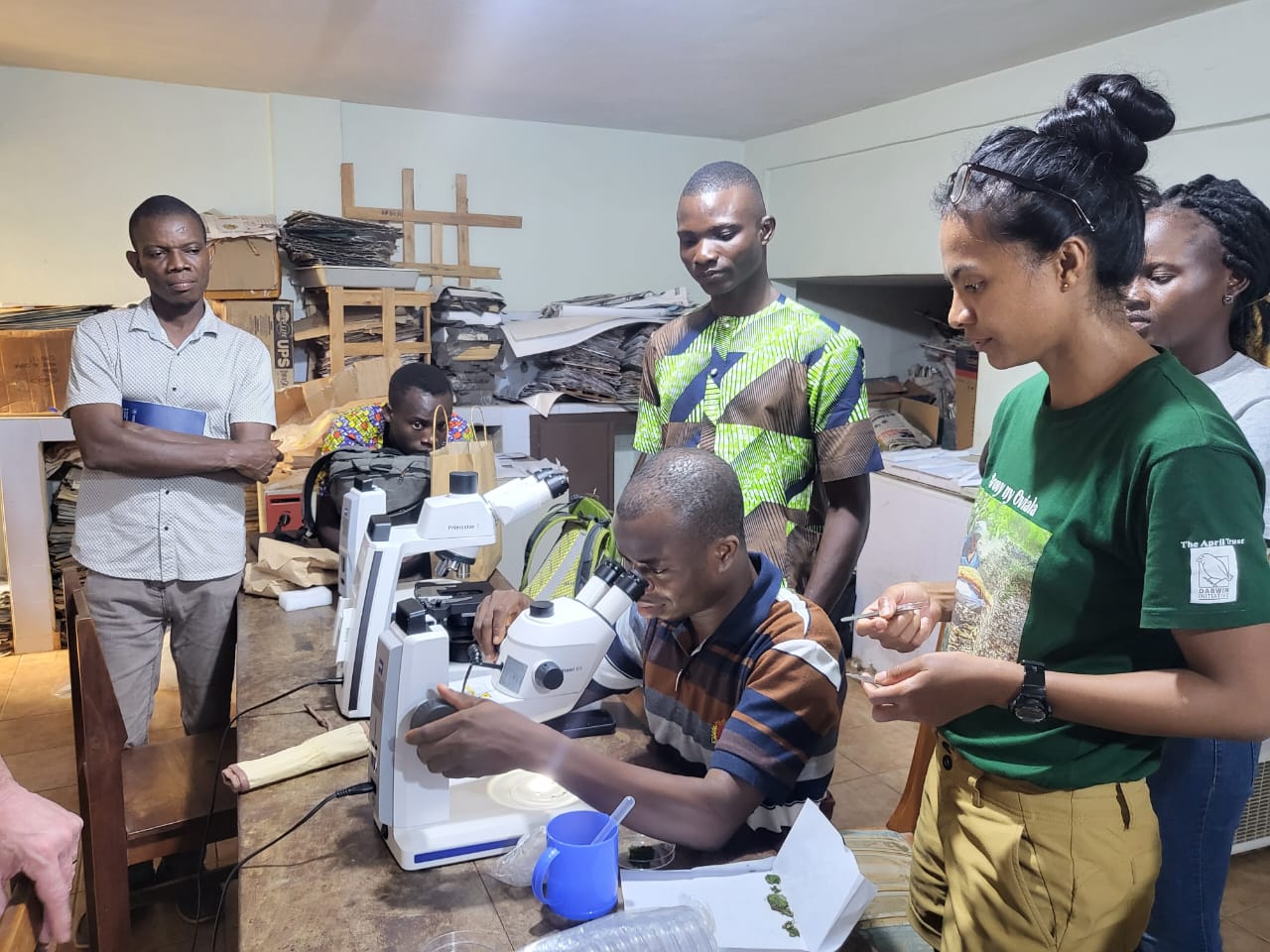
Mr Gafarou AGOUNDE, PhD 1 of the project observing a specimen.
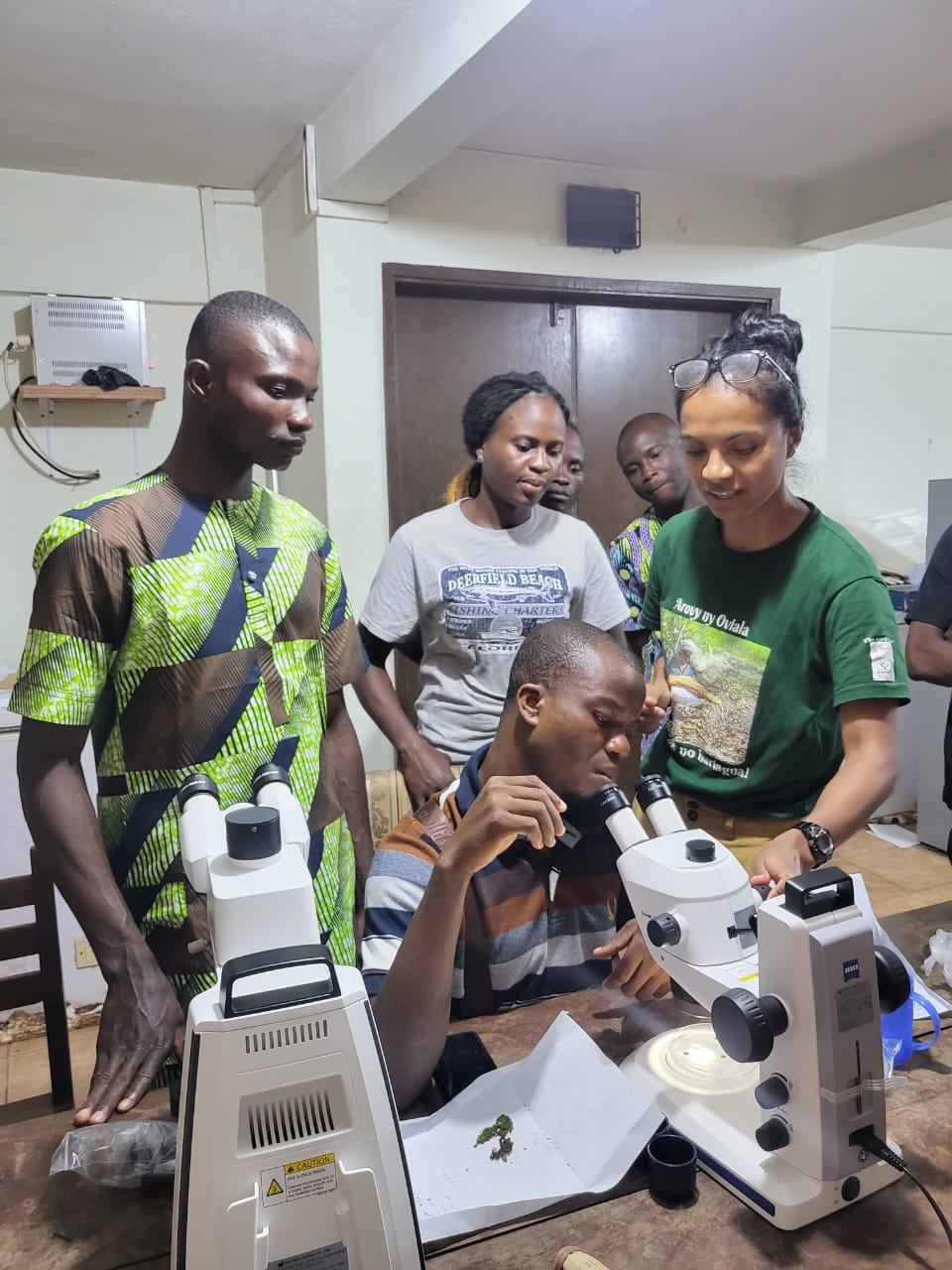
Dr. Lova giving some instructions to the PhD student
Activity 4: PhD student presentations - research proposal
The two PhD students KPETIKOU Ghyslain (Topic 1) and AGOUNDE Gafarou (Topic 2) each presented their proposals to the Bryoben team. The aim of this session was to evaluate and fine-tune the protocols of these doctoral students, and to reinforce their skills in the methodologies to be adopted for carrying out the project's activities.
